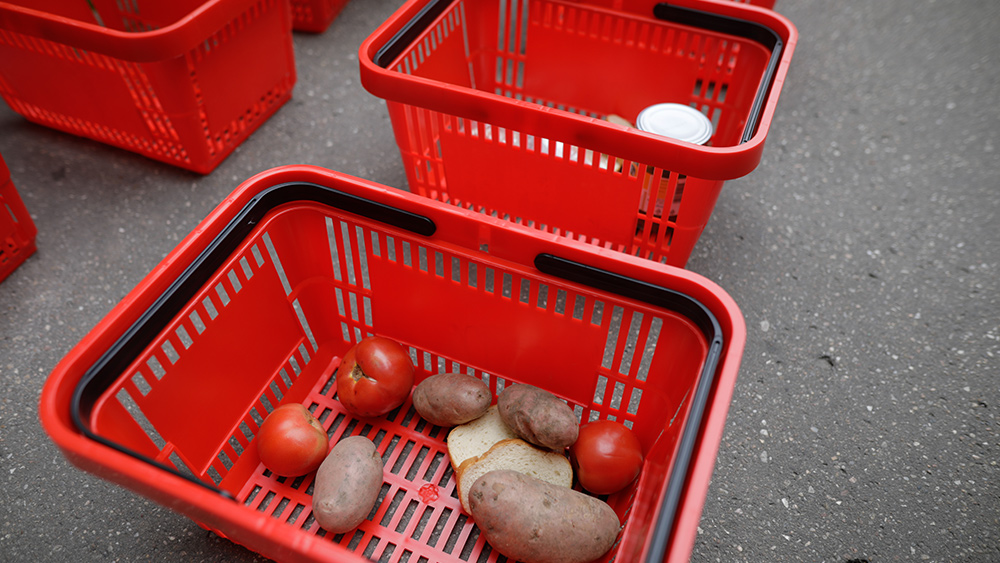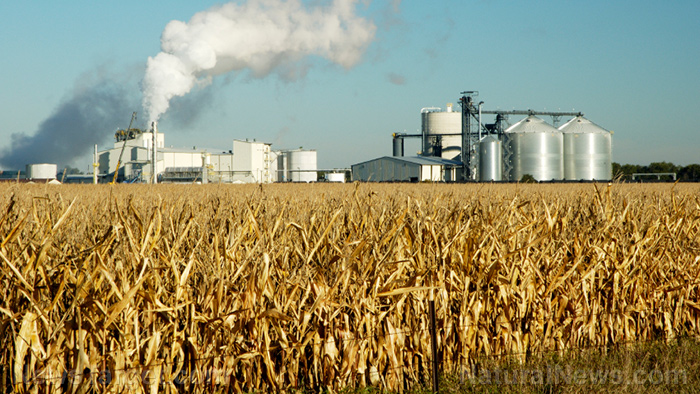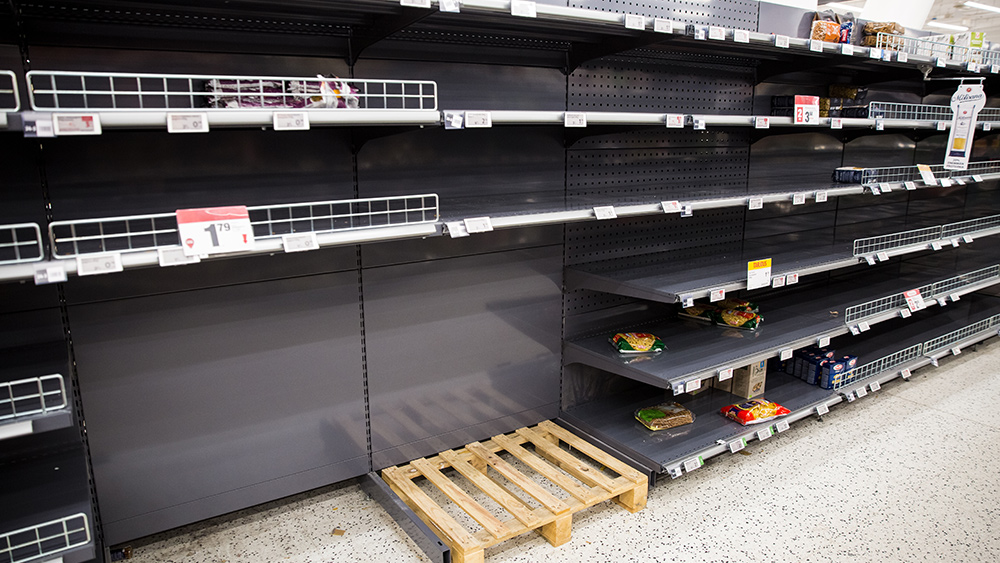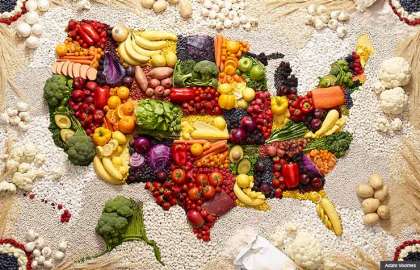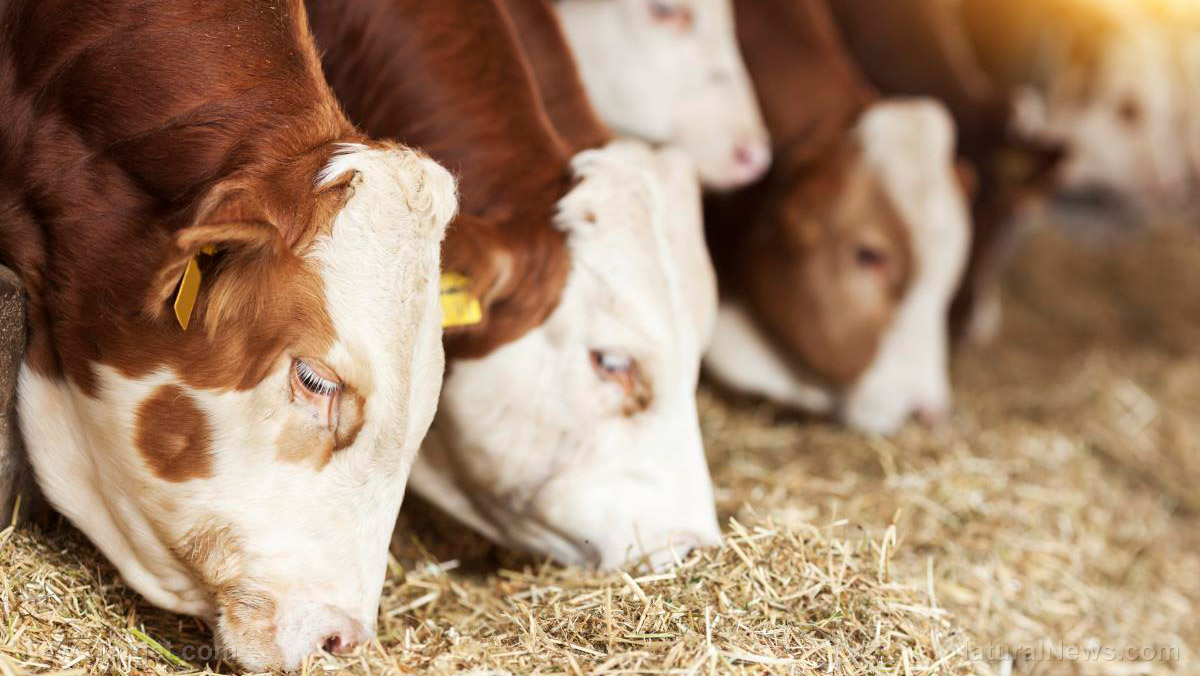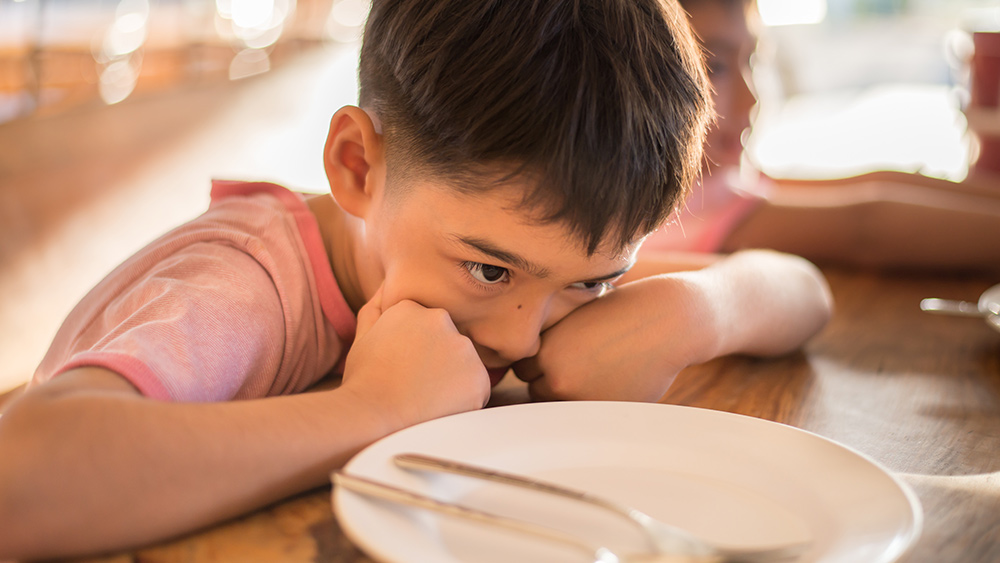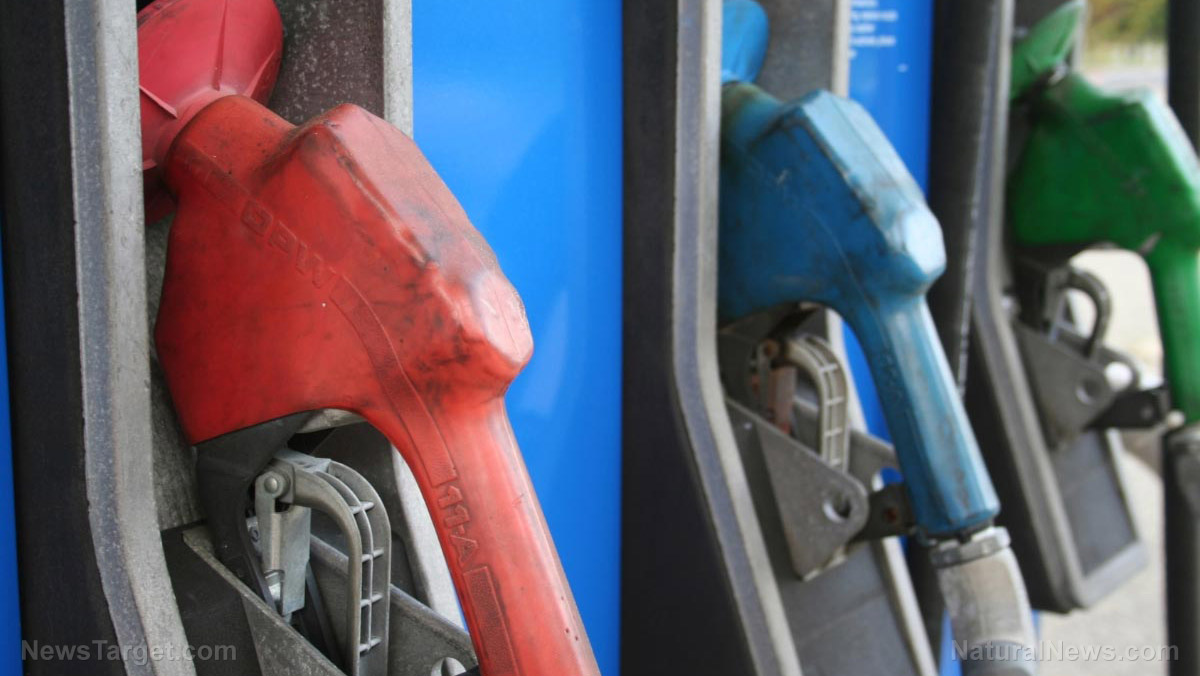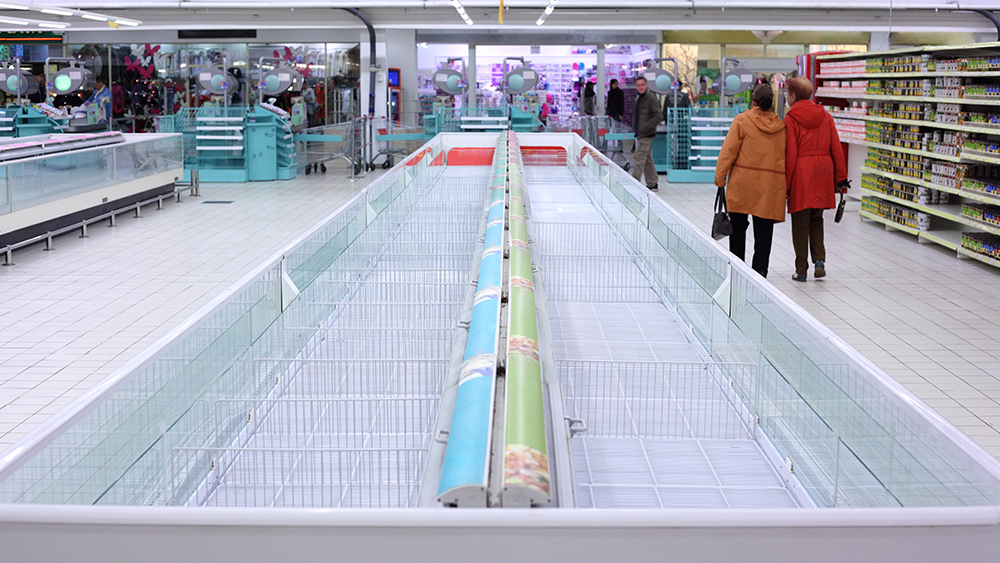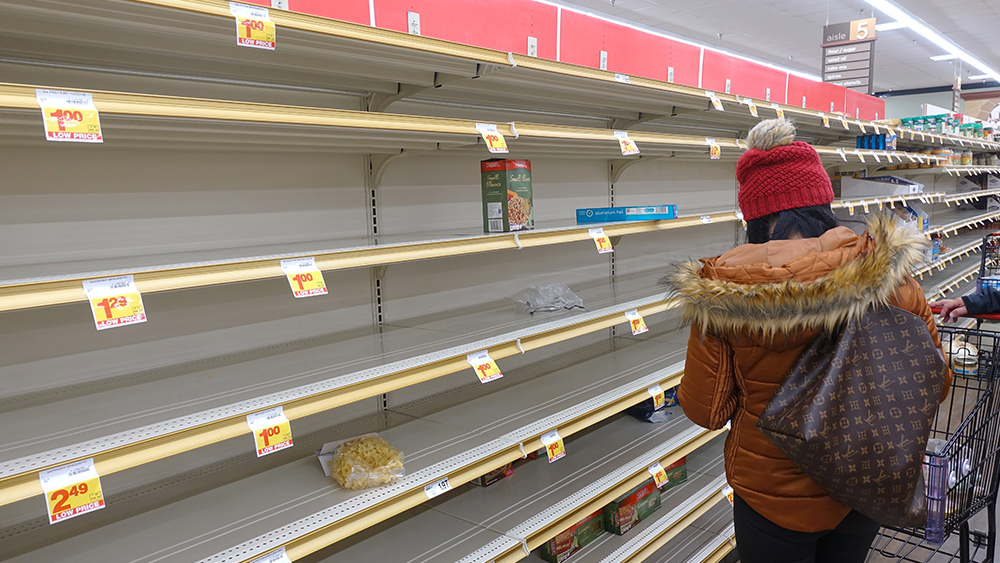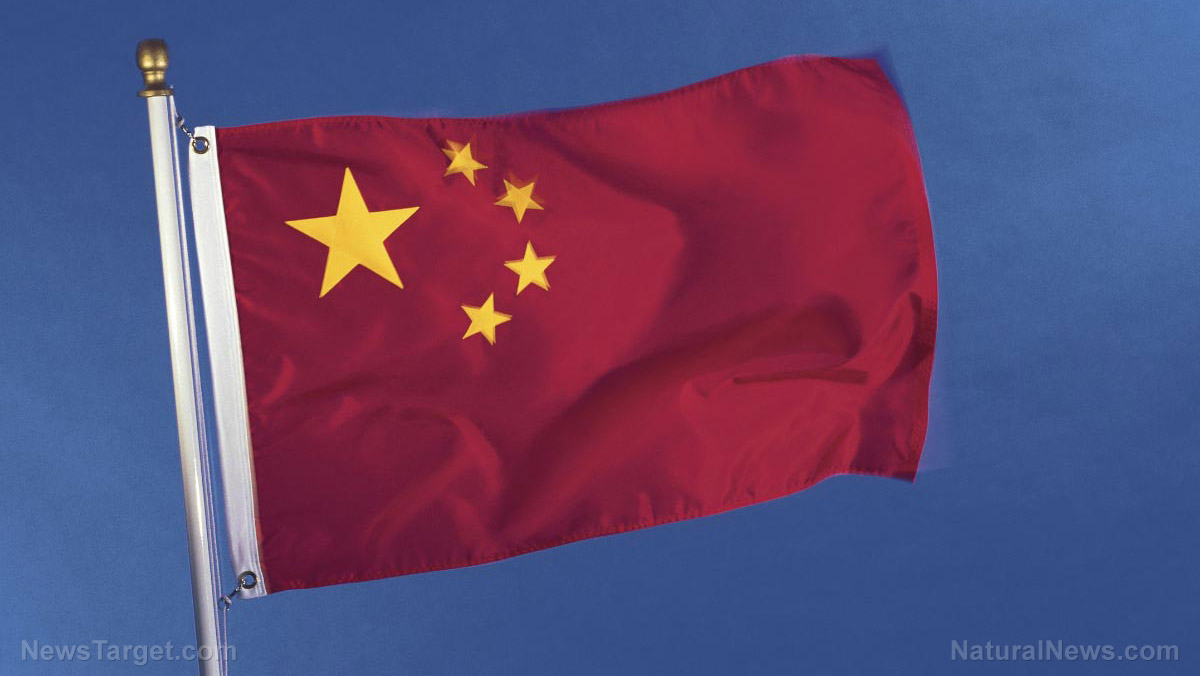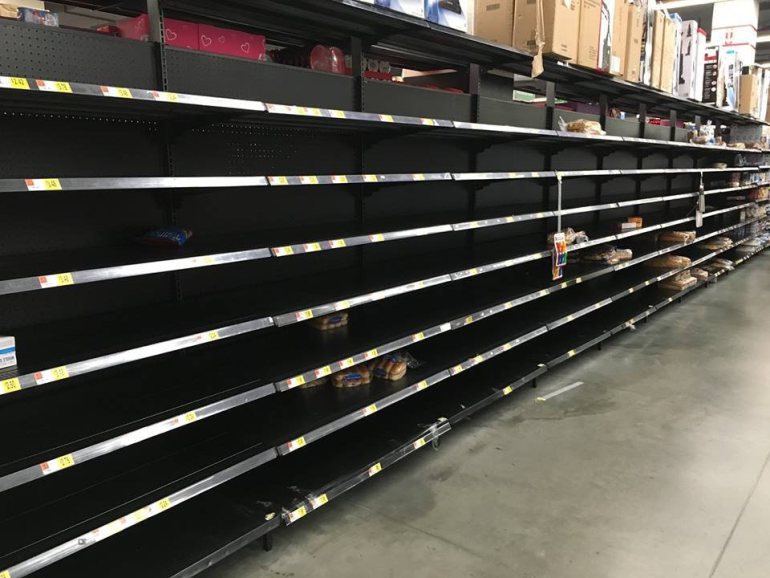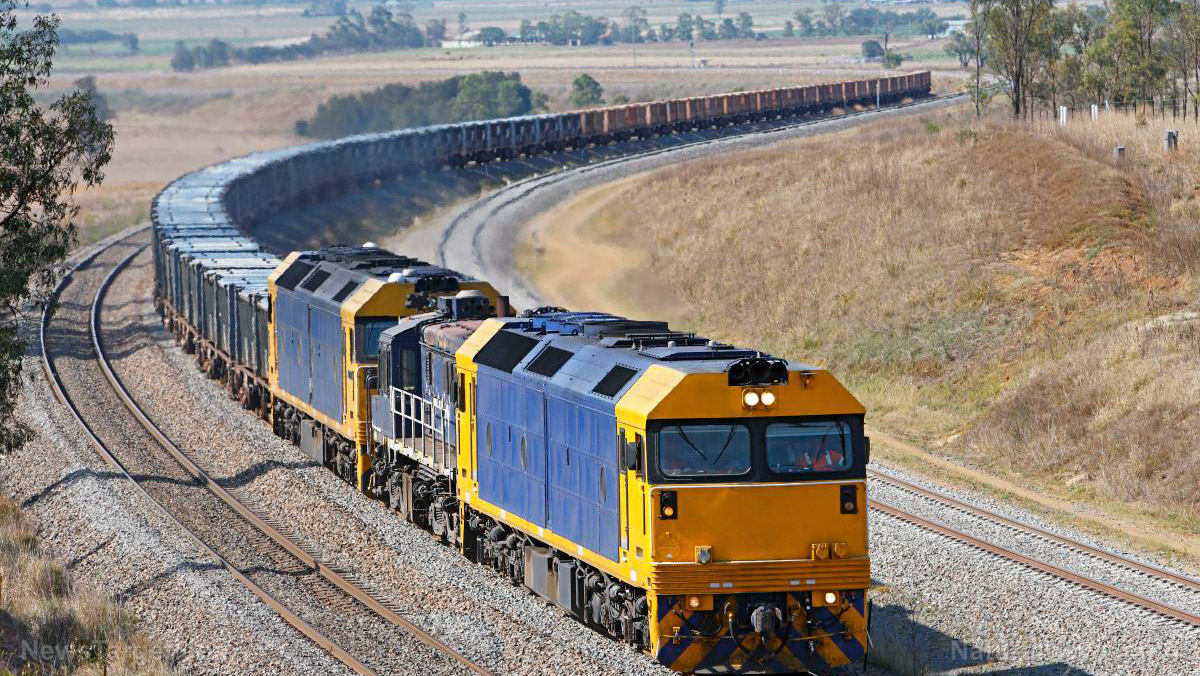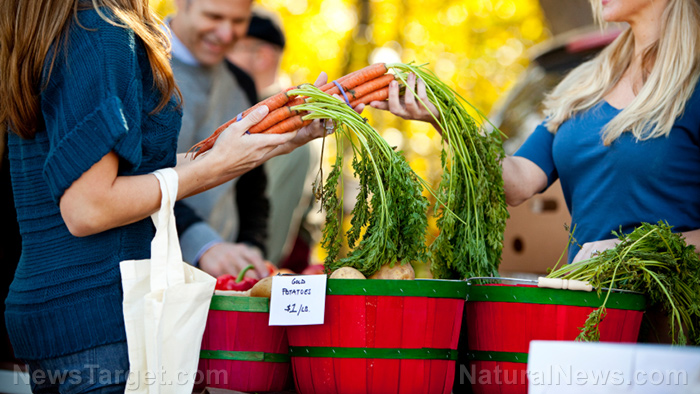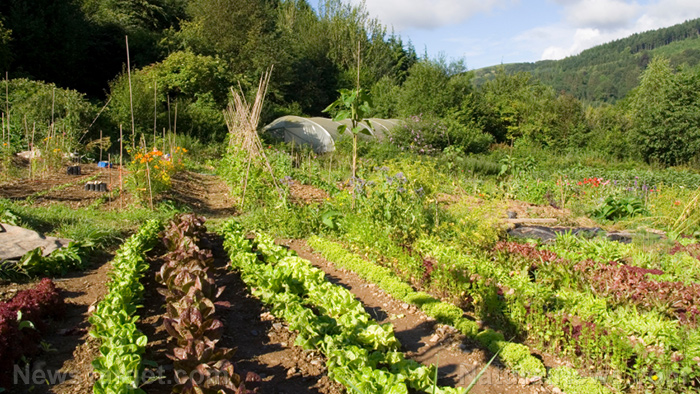Food prices in Germany increase by 20-50% amid conflict in Ukraine
04/05/2022 / By Ethan Huff
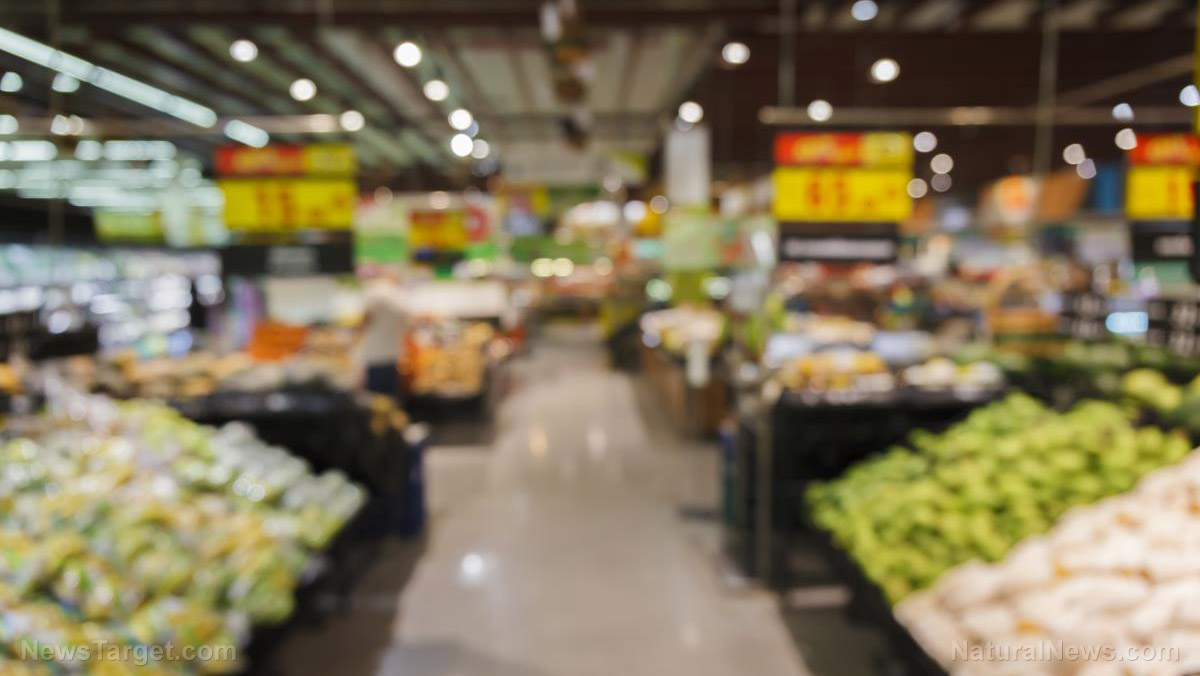
History is repeating itself in Germany, where Weimar-style hyperinflation is banging at the nation’s doors.
Just after breaching the highest inflation numbers in a generation – the country’s CPI soared at a 7.6 percent annual pace in February right before Russia’s invasion of Ukraine – Germany’s grocery sector has announced another wave of price increases.
The German Retail Association (HDE) is warning that consumers need to prepare for price hikes on everyday goods of anywhere from 20 to 50 percent in the coming days. This will affect even discount grocers such as Aldi, Edeka and Globus.
Before the Ukrainian invasion, prices had already risen in Germany by about 5 percent “across the product range” due to skyrocketing energy prices. After the invasion, the supply chain took an even greater hit, according to HDE President Josef Sanktjohanser.
“The second wave of price increases is coming, and it will certainly be in double figures,” Sanktjohanser told The Local.
“We will soon be able to see the impact of the war reflected in price labels across all the supermarkets.”
Aldi announced that meat and butter at its German stores will be “significantly more expensive” due to price hikes from its suppliers.
“Since the start of the Ukraine war, there have been jumps in purchase prices that we have not experienced before,” a spokesman for Aldi Nord announced.
Previously, Aldi raised prices on about 160 different items, followed by another 20 more a week after that. Other supermarket chains quickly followed suit.
How long will it be before Germany runs out of food?
The latest figures show that Germany’s overall cost of living is rising at the highest level since reunification. Between January and February, everyday goods increased from 5.1 percent to 7.3 percent, with Russia taking the blame.
Almost all companies in Germany’s food retail sector, a new survey from the Ifo Institute reveals, are planning to increase prices.
As for food shortages, industry experts do not expect them any time soon. The reason for that is because with fewer Germans being able to afford food, demand will decrease.
Joachim Rukwied, the president of Germany’s farming association, had previously said the food supply in that country is guaranteed for at least another year. That was before the latest news about inflation, however.
“With rumors of shortages swirling around … supermarket owners have been complaining of the sort of panic-buying not seen since the first months of pandemic,” reported Zero Hedge.
“As previously noted, German supermarkets have even started limiting the purchase of cooking oils and flour in particular to prevent a mad rush to stock up on items that customers believe will run out. In other words, limit the sale of those products which are in highest demand, also known as a ‘brilliant strategy.'”
It remains to be seen how everyday Germans respond to these massive price increases, and whether or not they continue to support the NATO stance against Russia that is largely responsible for them.
“Germans know all too well where this is headed, as the Weimar Republic,” wrote someone at Zero Hedge. “When it starts, it can be a matter of weeks before the money becomes literal trash.”
“Looks like the sanctions are working out really well,” joked another. “At least the Germans can rest assured knowing they are not helping any Ruskies by buying food at cheap prices.”
“All of this suffering is because ‘Ukraine refuses to be neutral,'” suggested another. “I can see a world where the citizens of all countries stand up and say ‘no more’ to sanctions and support.”
To keep up with the latest news about the collapse of Western civilization, be sure to check out Collapse.news.
Sources for this article include:
Submit a correction >>
Tagged Under:
Aldi, Edeka, food, food prices, food riots, food supply, Germany, Globus, groceries, grocery, Inflation, rationing, Russia, starvation, Ukraine
This article may contain statements that reflect the opinion of the author
RECENT NEWS & ARTICLES
COPYRIGHT © 2017 STARVATION NEWS

